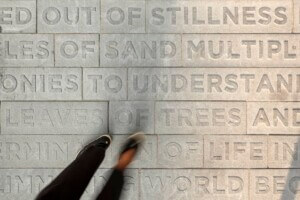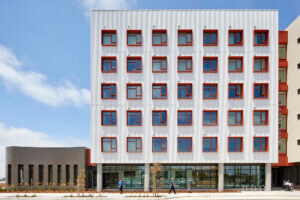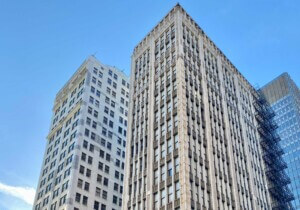Chicago Mayor Lori Lightfoot and the city’s Department of Housing (DOH) Commissioner Marisa Novara announced on December 6 a historic $1 billion investment to bolster the amount of affordable housing through the $1.2 billion “once-in-a-lifetime” Chicago Recovery Plan, approved as part of Lightfoot’s 2022 budget. Setting out to create and preserve over 2,400 affordable housing units spread across 24 citywide developments, the investment is the largest of its kind in city history and will yield more than double the developments awarded (11) and units built (1,084) over the $398 million 2019 Low-Income Housing Tax Credit (LIHTC) round.
Roughly 29 percent of the units will be two- three- or four-bedroom units geared toward families while 394 of the homes will be affordable to households earning 30 percent of the area median income. Five will be Chicago Housing Authority (CHA) developments yielding 566 total units, including affordable ones.
“Investing in affordable housing is a critical component to creating an equitable, strong city,” said Lightfoot in a statement. “I am thrilled that we’ve been able to expand our investments in affordable housing to move us closer towards that vision for our city. I look forward to seeing these developments come to life and provide more affordable, safe housing options on our South and West Sides.”
As mentioned by Lightfoot, a lion’s share of these new/preserved will be located on the city’s South and West Sides. Per a breakdown provided by the city, 18 of the 24 (75 percent) are Equitable Transit-Oriented Developments (eTOD), and 12 of those 18 are located on the South and West Sides. Eight of the 24 developments are within INVEST South/West neighborhoods. What’s more, 10 of the developments will be BIPOC-led and will have BIPOC participation.
As detailed by the city, the DOH received 51 total applications seeking LIHTC funding, and the selected projects are an “innovative mix of new construction, preservation, and rehabilitation including Chicago’s first development in partnership with and for indigenous populations, and an adaptive reuse of a former Chicago Public School for re-entry housing.”
“Low-Income Housing Tax Credits are the largest funding source we have for the creation of affordable rental housing, a process we have made more equitable through our Racial Equity Impact Assessment,” added Novara. “This year, made possible in part by the Chicago Recovery Plan, we also have the opportunity to more than double our impact with the largest tax credit investment in this City’s history.”
In addition to the historic investment in 24 developments, Lightfoot also announced the city’s finalized acquisition of a sprawling, 6-acre parcel of vacant land in Pilsen, a Latinx stronghold on the Lower West Side, that will be used to bring a minimum of 280 affordable housing units to the neighborhood. Expected to generate $100 million in economic activity, the development scheme follows a pair anti-displacement measures passed earlier this year by Chicago City Council geared to prevent long-time residents from being ousted from their homes as the neighborhoods around them undergo “transformative improvements.”
While not necessarily displaced by “transformative improvements,” the Chicago Tribune and other outlets have recently reported on an ongoing exodus impacting historically Black communities where residents, many of whom come from families with Chicago roots dating back generations to the Great Migration, are leaving the city (and Illinois) behind for neighboring Midwestern states and, in many cases, the same Southern cities that their ancestors fled from. The reasons for this out-migration are varied and include gentrification, chronic disinvestment, violence, and a dearth of community resources and amenities. As detailed by the Chicago Sun-Times, the neighborhoods of Austin and West Englewood have been most profoundly impacted by this ongoing flight.
As for the 24 proposed affordable housing developments, next they must win City Council approval for public subsidies and undergo underwriting, design review, and zoning approvals. The entire closing process is anticipated to take between eight and eighteen months according to the city. The full list of 51 proposals submitted for the 2021 funding round can be viewed here.
In related news, the 2021 Chicago Architecture Biennial, The Available City, will conclude tomorrow, December 18.











